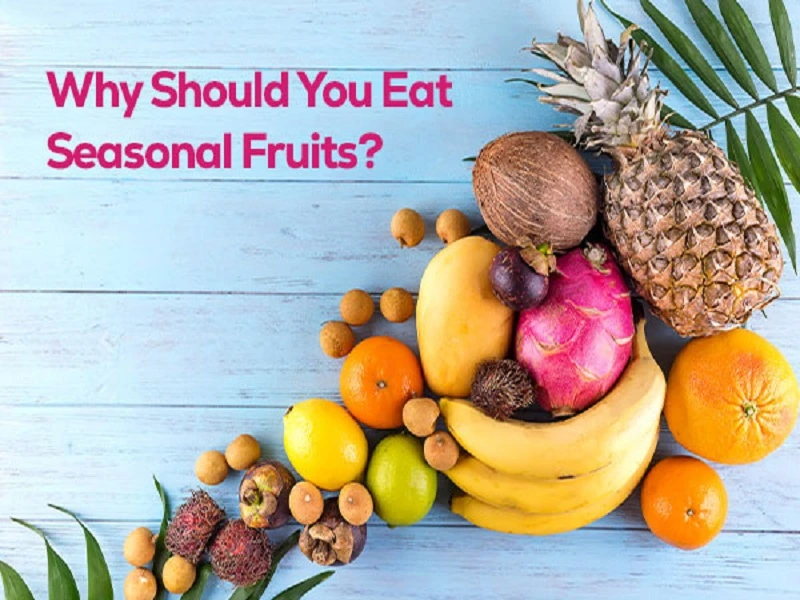
Introduction
Welcome to our beginner’s guide on the delightful world of seasonal fruits! One of the best ways to enjoy the freshest and most flavorful fruits is by understanding what is in season during different times of the year. Eating seasonal fruits not only enhances your culinary experiences but also supports local farmers and the environment. In this comprehensive guide, we will explore the basics of seasonal fruits, why eating in season is beneficial, and the most popular fruits available throughout the year.
What are Seasonal Fruits?
Seasonal fruits are fruits that naturally grow and ripen during specific times of the year. These periods are influenced by factors such as climate, temperature, and daylight hours. As nature’s bounty varies with each season, so do the types of fruits available in their prime. Embracing seasonal eating means relishing the best flavors and nutritional value that each fruit has to offer at its peak.
Benefits of Eating Seasonal Fruits
Eating seasonal fruits comes with a host of benefits. Firstly, they are more nutritious and flavorful. Since they are harvested at the right time, their nutrient content is at its peak. Secondly, seasonal fruits are often more affordable due to their abundance during specific periods, making them budget-friendly options. Additionally, consuming local seasonal fruits supports the local economy and reduces the environmental impact of transporting fruits over long distances.
Spring Fruits
As winter bids adieu and the world starts to bloom, spring brings forth a delightful array of fruits. Among the stars of this season are strawberries, cherries, apricots, and pineapples. Strawberries boast a refreshing sweetness, cherries dazzle with their juicy burst, apricots offer a delicate flavor, and pineapples provide a tropical twist.
Summer Fruits
Summer is synonymous with abundant fruits that bring refreshment during the hot days. Watermelon, peaches, plums, and berries dominate this season. Watermelon is a hydrating favorite, peaches and plums exhibit their juicy goodness, and berries offer a burst of antioxidants and vitamins.
Fall Fruits
With fall comes an enchanting palette of fruits with warm and comforting flavors. Apples, pears, grapes, and figs are stars of this season. Apples are versatile and perfect for pies, pears bring a buttery texture, grapes are excellent for snacking, and figs add a touch of sophistication to any dish.
Winter Fruits
Winter brings forth a unique charm with its selection of fruits that offer a sweet and tangy contrast to the chilly weather. Oranges, kiwis, pomegranates, and tangerines grace our tables during this season. Oranges boast a burst of vitamin C, kiwis provide a refreshing zing, pomegranates are rich in antioxidants, and tangerines offer a convenient and portable snack.
The Importance of Local and Sustainable
In this era of global connectivity, it’s easy to access fruits from all corners of the world, regardless of the season. However, choosing locally grown and sustainably sourced fruits has a positive impact on the environment and supports local farmers. By consuming local produce, you reduce the carbon footprint associated with transportation and help maintain biodiversity in your region.
Conclusion
Eating seasonal fruits is a delightful journey that connects us with nature’s rhythm while providing us with a variety of flavors and nutrients throughout the year. Embrace the beauty of each season by exploring the fruits it offers and relishing their unique tastes. Remember to support local farmers and opt for sustainable choices whenever possible. Happy seasonal eating!
FAQs (Frequently Asked Questions)
- When is the best time to buy strawberries?
- Strawberries are in season during spring, from late April to June. This is when they are at their peak in terms of sweetness and flavor.
- What are some popular winter fruits for making juices?
- Oranges, grapefruits, and pomegranates are popular choices for making refreshing winter juices packed with vitamin C and antioxidants.
- How can I tell if a watermelon is ripe?
- To find a ripe watermelon, look for a uniform shape, a creamy yellow spot on one side (indicating it ripened on the vine), and a hollow sound when you tap it.
- Are seasonal fruits more nutritious than non-seasonal fruits?
- Yes, seasonal fruits are generally more nutritious as they are harvested at their peak and haven’t spent extra time in storage or transportation.
- Can I freeze seasonal fruits to enjoy them later?
- Yes, you can freeze seasonal fruits to enjoy them beyond their season. Wash, slice, and store them in airtight containers for longer shelf life.
- Where can I find local farmers’ markets to buy seasonal fruits?
- Local farmers’ markets, grocery stores, and community-supported agriculture (CSA) programs are great places to find fresh, locally grown seasonal fruits.
- Do canned or frozen fruits retain their nutritional value?
- Canned and frozen fruits can still retain some of their nutritional value, but fresh seasonal fruits are usually the most nutrient-dense option.
- Are there any seasonal fruits that are available year-round?
- Some fruits, like bananas and apples, are available year-round due to modern storage and transportation methods. However, their flavor may vary slightly throughout the year.

